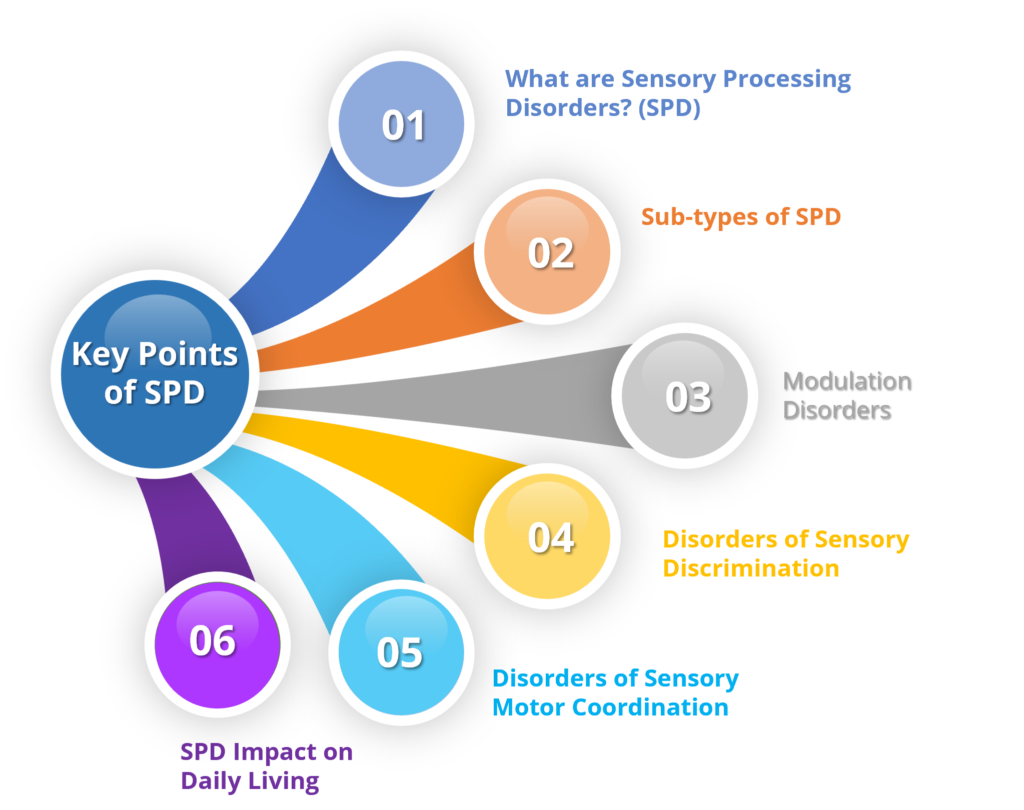What is Sensory Processing?
The term “Sensory Processing” generally refers to specialized activities of the nervous system. These specialized activities are triggered whenever sensory organs or their pathways are stimulated within the body. However, when this term is applied to children who have issues with child development, the term usually refers to Sensory Processing Disorders.

Sensory Processing Disorders (SPD) is a medical condition that begins in childhood and continues into adulthood unless treatment is provided. Dr. A. Jean Ayres identified SPD as a specific disorder during the 1950s while studying connections between the brain and behavior of children
What are Sensory Modulation Disorders?
One major sub-type of SPD is referred to as “Modulation Disorders”. The term “modulation” can have many meanings depending upon the line of work in which it is used. The term “modulation disorders” generally refers to sensory issues with behavior when referring to children who have SPD.
Disorders of Sensory Modulation – may be identified through key points that show problems with self control. These key points often include attention, emotional control, or interpersonal skills. Some of the problem behavior that is commonly seen in people who have Modulation Disorders include:
- Adaptability – being able to express oneself, but being flexible enough to be able to inhibit socially inappropriate behavior when needed
- Hyper-activity – having an overly high level of activity that interferes with being able to pay attention.
- Under-activity – having such a low level of awareness that it limits the ability to complete tasks that are needed
- Poor attention – having a high level of distractibility
Disorders of sensory modulation typically impact activities at home, at home, and during social activities as well.
Sensory Processing Issues: Type 1- Sensory Modulation
| General Symptoms: | Common Issues: |
|---|---|
| Key Points | Modulation Issues may look like this |
| Difficulty matching internal control with social demands as needed to organize oneself in terms of attention, emotional control, motor behavior, and social skills. | – Not Paying attention – Unable to remember instructions – Difficulty staying still – Difficulty maintaining physically active play – Easily become over excited – Easily frustrated |
For more information, please visit our blogs with more information about SPD
Sites with additional information about SPD:

Comments are closed.